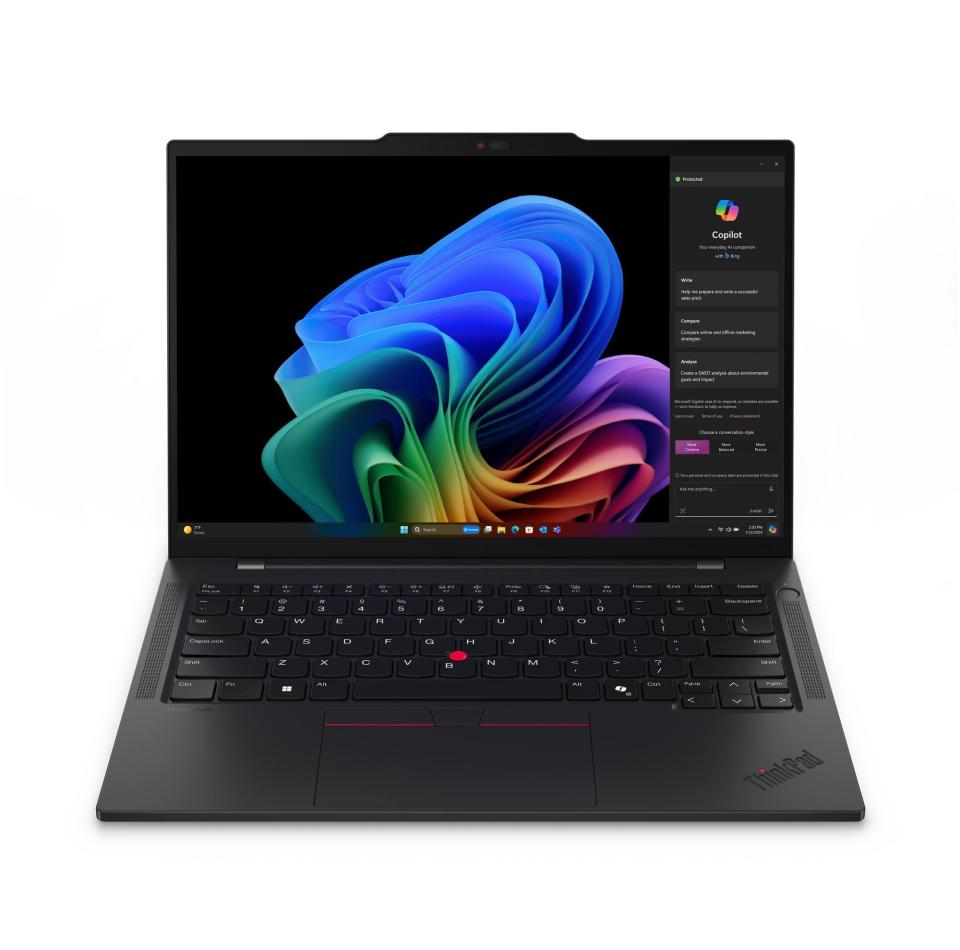Lenovo in 'unique position' to compete in global market for AI PCs, says top executive
Lenovo is in a "unique position" to compete in the global artificial intelligence (AI) personal computer (PC) market because of its differentiated product offerings for China and the rest of the world, according to the company's executive vice-president Luca Rossi, as the race to offer powerful computers that locally run AI tasks heats up.
China will be a "distinct place" for AI PCs because of its regulatory environment, and Lenovo is confident its competitive advantage will help it capture both the Chinese and global markets, Rossi, who is also president of Lenovo's Intelligent Devices Group (IDG), said in an interview with the South China Morning Post last week.
AI PCs commonly refer to laptops and desktop computers equipped with advanced chipsets that allow them to run many generative AI tasks on-device instead of processing data on the cloud.
Do you have questions about the biggest topics and trends from around the world? Get the answers with SCMP Knowledge, our new platform of curated content with explainers, FAQs, analyses and infographics brought to you by our award-winning team.
The competition to introduce such devices has escalated, with US technology giant Microsoft last week announcing Copilot+ PCs, a range of computers under its own brand as well as other major PC makers, embedded with Microsoft's generative AI service Copilot.
Lenovo is one of six companies that cooperated with Microsoft in the launch, offering two new Copilot+ PCs - the consumer-facing Yoga Slim 7x and the commercial model ThinkPad T14s Gen 6. Shipments for both models will begin on June 18.
However, Lenovo is offering different AI PC models for the mainland Chinese market, built with the company's own AI system, according to Rossi.
"The experience that will arrive to the market will not be exactly the same in the [rest of world] and China because of the different regulatory systems," Rossi said, citing data sovereignty as one consideration for creating separate products for the Chinese market.
"In China, we basically built most of it by ourselves. All the software is our own [intellectual property] for AI PC intelligence," he said.

The Lenovo Yoga Slim 7x Gen 9. Photo: Handout alt=The Lenovo Yoga Slim 7x Gen 9. Photo: Handout>
In recent years China has put in place restrictions for exporting data that is generated and collected in the country, prompting increased data localisation efforts by multinational corporations. With a strict online content censorship regime, operators of generative AI services in the country also need to obtain approval from the Chinese government before making their platforms available to the public.

Luca Rossi, president of Lenovo's Intelligent Devices Group. Photo: Handout alt=Luca Rossi, president of Lenovo's Intelligent Devices Group. Photo: Handout>
Microsoft's Copilot, available in more than 160 regions, is not available in mainland China, the company said on its website.
In April, Lenovo launched nearly a dozen AI PCs for mainland China incorporating AI technology called Xiaotian, Rossi noted.
Outside China, unique features of Lenovo's AI PC's, such as Smart Connect - software it launched with subsidiary Motorola that allows users to share files between their phones, tablets, and PCs - will make the company competitive in the market, according to Rossi.
The company expects that 15 to 20 per cent of its total PC shipments this year will be AI PCs, based on the broader definition of machines with a neural processing unit with at least 10 TOPS (tera operations per second).
But using Lenovo's own AI PC definition, which includes a range of features such as an AI agent, personalised knowledge base of its users, privacy and security, the company expects AI PC penetration to be below 10 per cent this year, Rossi said.

Lenovo's ThinkPad T14s Gen 6. Photo: Handout alt=Lenovo's ThinkPad T14s Gen 6. Photo: Handout>
Adoption will be faster among enterprises than among consumers, he said, because of the relatively higher price tags for AI PCs. Commercial customers are more willing to invest in the technology because of the productivity gains, he added.
China remains the company's biggest manufacturing base, but Lenovo also has factories in India, Hungary, Mexico and the US, which will help it manage "any possible circumstances" arising from supply chain disruptions, according to Rossi.
This article originally appeared in the South China Morning Post (SCMP), the most authoritative voice reporting on China and Asia for more than a century. For more SCMP stories, please explore the SCMP app or visit the SCMP's Facebook and Twitter pages. Copyright © 2024 South China Morning Post Publishers Ltd. All rights reserved.
Copyright (c) 2024. South China Morning Post Publishers Ltd. All rights reserved.

 Yahoo Finance
Yahoo Finance